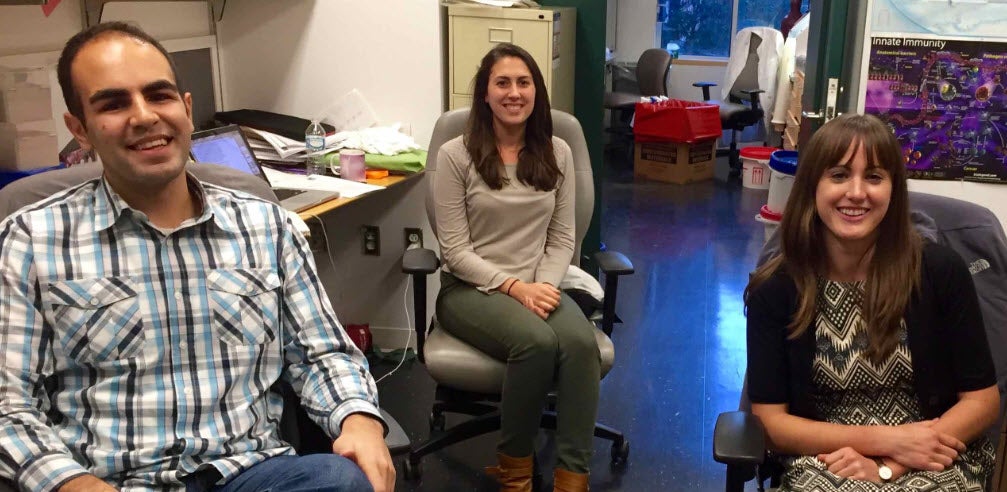Carrie Cowardin, former MIC graduate student with Bill Petri, and now postdoc with Jeff Gordon at Washington University, just published in Nature Microbiology her PhD thesis work on the epidemic strain of Clostridium difficile.
Carrie discovered that the epidemic strain is more virulent by virtue of the novel CDT toxin that it produces. Carrie writes that “We think that this toxin makes disease more severe by killing beneficial eosinophils, which seem to play an important role in promoting a healthy immune response during C. difficile infection. When the eosinophils were depleted with an antibody or by the toxin, we saw dramatically increased inflammation. Restoring eosinophils by transferring them from a mouse which cannot recognize the toxin prevented the damage inflicted by the deadly strain.” Carrie went on to show that the action of the CDT toxin is dependent upon TLR2, an observation that Alyse Frisbee, 2nd year MIC student, is pursuing in her research in the Petri lab.
Carrie published this work with her fellow MIC graduate students Erica Buonomo and Mahmoud Saleh: Cowardin CA, Buonomo EL, Saleh MM, Wilson MG, Burgess SL, Kuehne SA, Schwan C, Eichhoff AM, Koch-Nolte F, Lyras D, Aktories K, Minton NP, Petri WA Jr. The binary toxin CDT enhances Clostridium difficile virulence by suppressing protective colonic eosinophilia. Nature Microbiology 1, article number: 16108 (2016) doi:10.1038/nmicrobiol.2016.108

